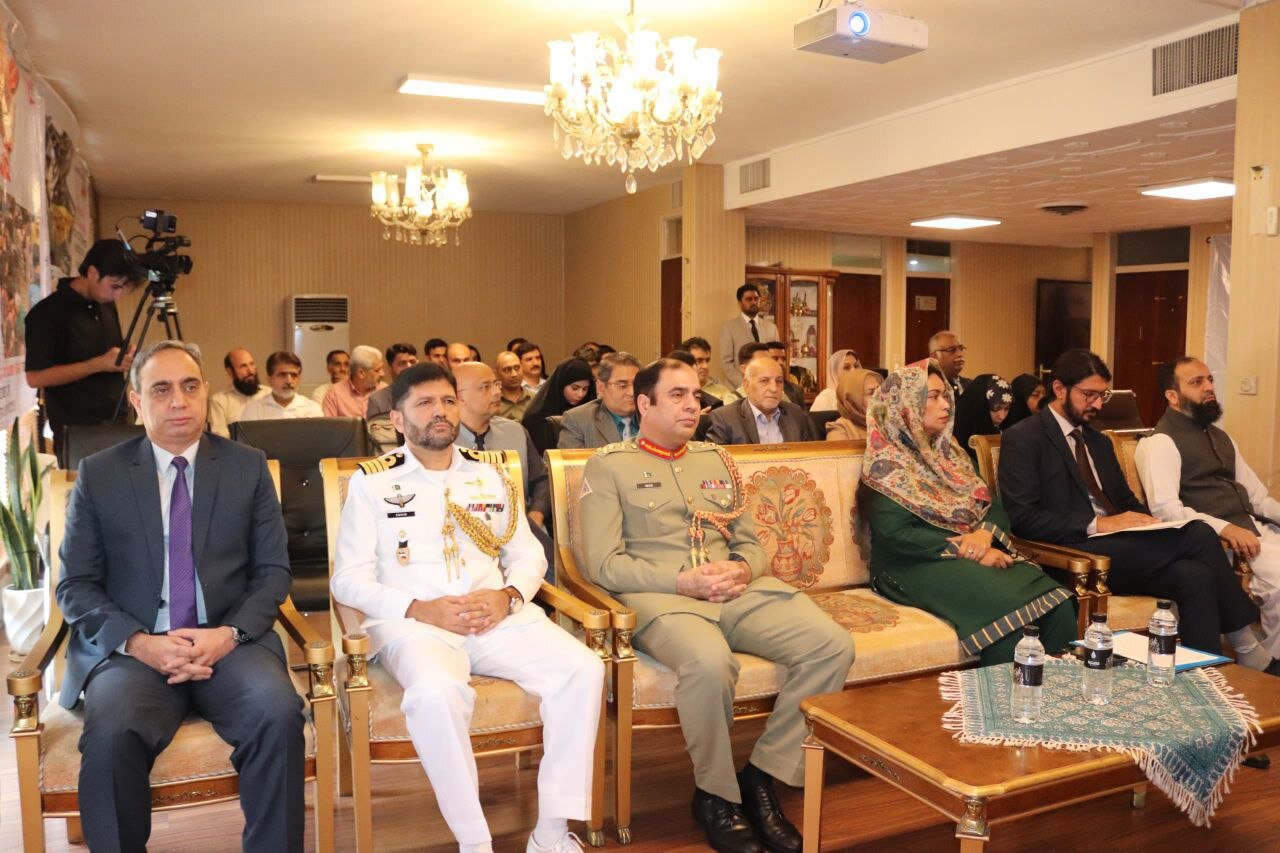Pakistan embassy in Tehran hosts Youm-e-Istehsal to spotlight Kashmir cause

TEHRAN – The Embassy of Pakistan in Tehran hosted a gathering on Tuesday to observe Youm-e-Istehsal (Day of Exploitation), marking the fourth anniversary of India’s revocation of Articles 35A and 370 on August 5, 2019.
This measure, which once granted special autonomous status to Jammu and Kashmir, is seen by Pakistan as a step toward demographic and political changes in the disputed territory. The event was attended by Pakistani diplomats, nationals, Iranian scholars, and media representatives.
Iranian scholars Qasim Safi and Ms. Samaneh Khalafzadeh spoke, detailing the decades-long struggle of Kashmiri Muslims and their right to self-determination. Deputy Head of Pakistan’s Mission, H.E. Ms. Ismat Hassan Sial, highlighted Iran's unwavering solidarity.
She noted that Iran's leadership, including Ayatollah Seyyed Ali Khamenei, has urged the international community to address human rights violations in Indian-administered Jammu and Kashmir. She also thanked the Iranian media for amplifying the voices of Kashmiris and documenting alleged abuses.
A short documentary was screened, showing scenes of mass detentions and alleged demographic engineering in Indian-controlled Kashmir. Organizers said the film aimed to reaffirm international obligations under the UN Charter and Security Council resolutions.
Messages from Prime Minister Muhammad Shehbaz Sharif and President Asif Ali Zardari were read aloud, which underscored New Delhi’s “unilateral actions” and reiterated Islamabad’s commitment to providing moral, political, and diplomatic support to the Kashmiri people.
The Kashmir conflict dates back to the 1947 partition of British India, when princely states were given the choice to join India or Pakistan. Muslim-majority Kashmir was split into regions administered by both countries. UN-mediated ceasefires and resolutions have called for a plebiscite, but the dispute remains unresolved amid recurring tensions and armed skirmishes.
The Leader of the Islamic Revolution, Ayatollah Seyyed Ali Khamenei, has long supported oppressed Muslim communities worldwide, including Kashmir. In April 2018, he declared, “We hope that the Iranian nation, the Syrian nation, the Iraqi nation, the oppressed nation of Palestine, the people of Kashmir and Myanmar achieve victory in the not-too-distant future.”
During a visit to Islamabad this past May, Iranian Foreign Minister Abbas Araghchi stressed the necessity of restraint between the two nuclear-armed neighbors. He also reaffirmed Tehran’s offer to facilitate dialogue toward a peaceful settlement of the Kashmir dispute in line with international law.
Leave a Comment